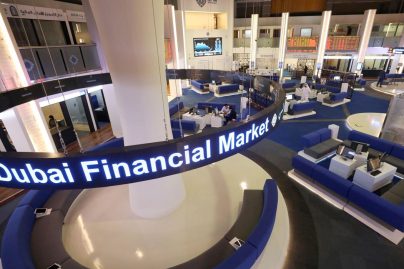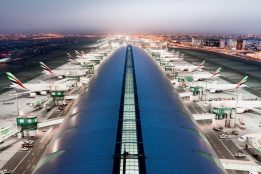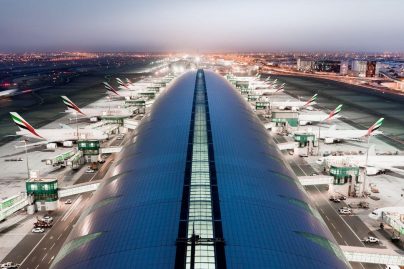Why are all the world’s major sporting events moving to the Middle East ?
Thu 02 Nov 2023
Dubai: In recent times, the Middle East has firmly established itself as a top-tier hub for major sporting events. The spotlight on the region has intensified, and this weekend’s electrifying super-crossover-fight between boxing heavyweight world champion Tyson Fury and UFC behemoth Francis Ngannou exemplifies the growing appeal of the Middle East as a premier sporting destination.
Historically, iconic venues like Madison Square Garden in New York, Wembley Stadium in London, or the MGM Grand Arena in the United States or Britain have been the go-to choices for hosting the world’s most significant sporting events. However, in 2023, a notable shift is underway.
The Arab world is becoming the ‘go-to’ location for sports top encounter.
Whether it’s the Qatar 2022 World Cup, hailed by many as one of the greatest in history, Abu Dhabi’s unwavering dedication to hosting the grand finale of the Formula 1 calendar, or the boxing blockbuster showdowns like Anthony Joshua vs. Oleksandr Usyk and the aforementioned Fury vs. Ngannou clash, it’s clear that Qatar, the UAE, and Saudi Arabia are spearheading the world’s most prestigious sporting events. These Middle Eastern destinations have become synonymous with excellence and grandeur in the realm of sports entertainment, luring top athletes, global fans, and massive audiences.
State-of-the-art facilities and hospitality
The Middle East boasts a stunning array of state-of-the-art sporting facilities that rival the best in the world. Take the FIFA World Cup in Qatar for example, eight brand-new marquee stadiums were constructed to host the games each taking their own inspiration from the regions rich history. Furthermore, the Etihad Arena in Abu Dhbai has gained worldwide acclaim for its awe-inspiring architecture. Saudi Arabia is infamous for their swift purpose-built construction of stadiums for events, such as Joshua vs Usyk in August 2022.
While the architectural splendor of the hosting venues is indeed noteworthy, the Middle East’s appeal goes beyond just aesthetics—it’s also about the unmatched hospitality. A prime example of this was witnessed recently when dozens of mega-stars gathered for a media and lunch event in the lead-up to Fury vs. Ngannu. They collectively expressed their admiration for the event, emphasising how warmly they were welcomed and how eager they were to return for future contests. UFC CEO Dana White has hailed Abu Dhabi as a “great place” and expressed his intention to continue bringing the UFC to this region “for the rest of his life.”
Year-Round Weather and Friendly Time Zones
The Middle East’s climate plays a significant role in its appeal as a host for sporting events. With consistently warm and sunny weather, it offers a reliable backdrop for outdoor competitions – such as the DP World Championships in November. Unlike other regions where events may be affected by adverse weather conditions, the Middle East provides a dependable environment that minimises disruptions, making it an attractive choice for organisers.
Moreover, the Middle East holds a significant advantage when it comes to accommodating the timezones of Western consumers. Let’s consider a boxing match as an example. Typically, these fights are scheduled to begin between 11 pm and 1 am local time—a prime slot for a card’s main event. This timing aligns conveniently with the evening hours in the UK, being just 3 hours behind, and offers afternoon entertainment to viewers in the United States allowing it to cater to a global audience while keeping the viewing experience accessible and enjoyable for fans.
Economic Investment
The governments in the Middle East have made significant investments in hosting major sporting events, recognising them as a strategic tool for economic diversification and tourism promotion. This substantial financial support ensures that these events are not just ordinary occurrences but grand spectacles that leave a lasting impact. Such investments play a pivotal role in making these events possible. For instance, take the highly anticipated fight between Fury and Usyk, a bout eagerly awaited by the boxing world. Boxers of this caliber command substantial fees, and the Middle East’s ability to provide the necessary resources creates a mutually beneficial scenario. Fans get to witness their favorite superstars in action, while governments benefit from hosting these marquee events.
The Middle East’s investment in sports reaches far beyond local initiatives; it has a global footprint. A noteworthy instance is Abu Dhabi’s ownership of Manchester City Football Club, which has led to substantial progress both on and off the pitch. The transformation of the infrastructure around the ‘Etihad Campus’ and the investments in new stadiums has not only revitalised the sporting landscape but also generated a significant surge in employment opportunities in an area that was previously overlooked by local authorities.
Everything you need to know about baseball & Baseball United: The new baseball league coming to UAE
The Middle East has become a global sporting epicenter, and its rise as a host for major events shows no signs of slowing down. With world-class facilities, unmatched hospitality, and strategic investments, the region has earned its place in the sports spotlight. The Middle East just does things better than anywhere else now, making it a compelling and dynamic rising hub for sporting excellence.
Also read: UAE readies for a bustling 2024, hosting global conferences and events

 May 02 2024
May 02 2024













